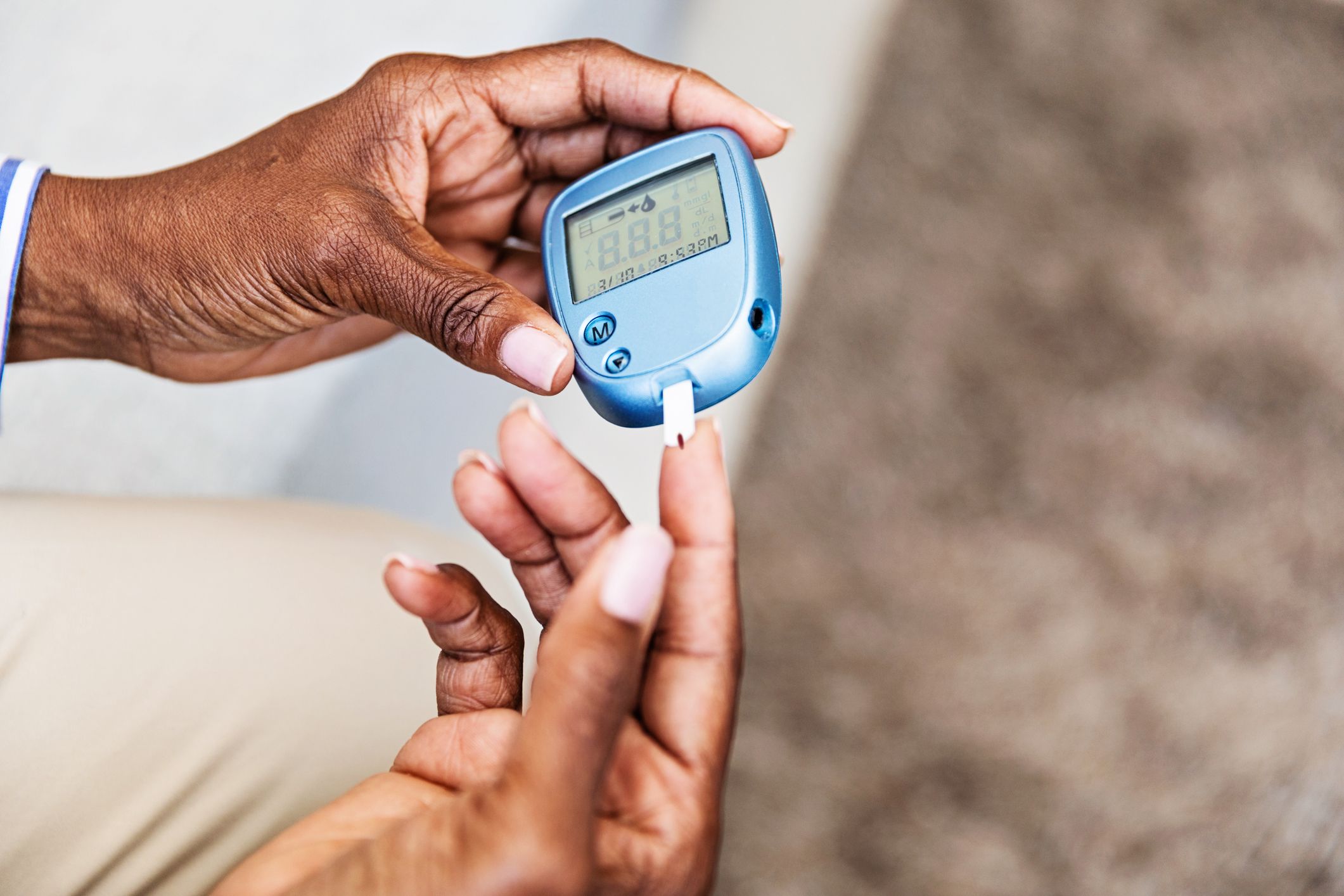Updated on October 9, 2024
Type 2 diabetes is a disorder that affects the body’s ability to use its main source of energy, blood glucose. Also referred to as blood sugar, blood glucose is a type of sugar that circulates in the blood, where it can be transported to different cells, tissues, and organs throughout the body.
In order to use blood glucose, cells require a hormone called insulin. Insulin helps move glucose into cells, where it can be used as energy or stored for later use.
When there is not enough insulin, or the body cannot use insulin effectively, blood glucose levels become higher than normal, and cells are unable to access the energy needed to function normally. This is a basic idea of what is happening in the body when a person has type 2 diabetes.
Chronically elevated blood glucose (called hyperglycemia) causes damage to blood vessels, including blood vessels that supply the eyes, kidneys, nerves, brain, legs, and heart. This can lead to many complications. Type 2 diabetes is one of the leading causes of cardiovascular disease, vision loss, kidney disease, and lower limb amputations.
Good nutrition, regular exercise
There is no cure for type 2 diabetes, and treatment focuses on keeping blood glucose levels controlled, treating symptoms, and preventing complications. Education on type 2 diabetes and how it affects the body is another important part of treatment.
Treatment will vary from person to person, but nutrition and regular exercise are a focus of all type 2 diabetes treatment plans. The body gets glucose from the foods a person eats, so food choices play a significant role in blood glucose levels. Exercise improves the body’s ability to use insulin and also improves cardiovascular health.
A healthcare provider will be your best source of information. People are not advised to make significant changes to their diet without consulting a healthcare provider. It’s also a good idea to seek guidance from a healthcare provider when beginning a new exercise program.
Medications to treat type 2 diabetes
Many people with type 2 diabetes will need to take medications to keep blood glucose levels under control, and there are several different medications available that can help control blood glucose levels. Many people also take medications to address co-existing conditions related to diabetes, such as high cholesterol levels and hypertension.
Questions when starting a new medication
Because type 2 diabetes is a lifelong condition that requires ongoing management, treatment can change over time. Use these questions when discussing a new treatment with a healthcare provider.
- What is the name of the medication?
- What dosage will I be taking?
- How is this medication administered? For example, is it taken as a pill or injection?
- How often will I need to take this medication and at what times of day?
- Why do you recommend this medication for me?
- Will I need to stop taking any diabetes medications that I am currently taking?
- How does this medication work to treat type 2 diabetes?
- What is the goal of taking this medication? How will we know if this medication is working?
- What can I do to get the most benefit from this medication?
- Is there anything that I need to avoid while taking this medication?
- Is there anyone who should not take this medication? It is a good idea to review your family medical history, personal medical history, and the full prescribing information, and bring up any concerns with your healthcare provider.
- What is the risk of side effects? Is there any risk of severe side effects? What symptoms do I need to watch for? How can side effects be avoided and/or addressed?
- Can this medication interact with other medications? Your healthcare provider should always have an up-to-date list of medications you are taking, including prescription medications, over-the-counter medications, and supplements (including herbal supplements).
- Is this medication covered by my insurance plan? Also, what are the out-of-pocket costs? Ask what you can do and who you can talk to if you have concerns about the cost of a medication.






